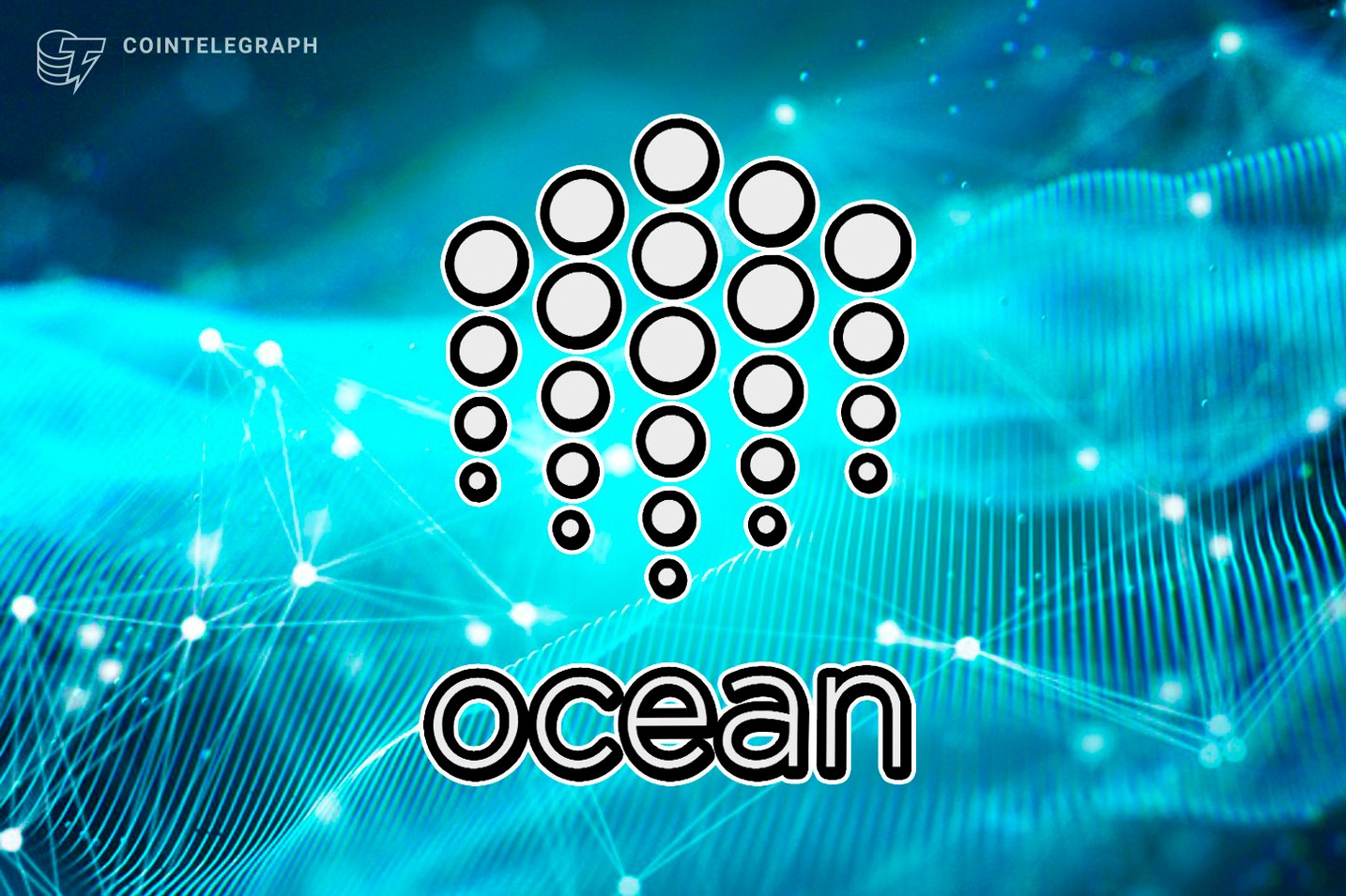This content is provided by a sponsor
- The new features build on Ocean v3 to drive growth opportunities on Ocean-powered data marketplaces.
- OceanOnda v4 is deployed on the Ethereum mainnet, Polygon, BNB Smart Chain, Moonriver and the Energy Web chain.
Singapore, June 10, 2022 — Ocean Protocol, the open-source, decentralized data exchange protocol to unlock data for AI, has announced the launch of OceanOnda v4. The upgrade caters to data publishers, consumers and marketplace operators with three key features: data nonfungible tokens (NFTs) for more flexible data management, one-sided staking to solve rug pulls and better community monetization via fee-setting.

Bruce Pon, founder of Ocean Protocol, said, “The OceanOnda v4 release is the most important milestone to date to fulfill our vision: Ocean Protocol, as the orchestration layer for data services and AI, [is] the general-purpose, data-sharing and monetization infrastructure that brings data providers and data consumers together.
OceanOnda builds on Ocean V3 data tokens for access control, automated pricing, compute-to-data to retain privacy and control, and the Ocean Market decentralized app to publish, swap, stake and consume assets.
Data NFTs
Ocean v3 had ERC-20-protocol data tokens, where one data token was a license to consume the related data set. Ocean v4 adds ERC-721-protocol data NFTs to model the copyright or exclusive license for an asset. The NFTs also maximize flexibility in data IP management.
Data NFTs allow arbitrary key-value metadata fields, on-chain availability, and General Data Protection Regulation compliance with on-chain encryption. It provides interoperability and composability in the wider NFT, decentralized finance and decentralized autonomous organization ecosystems.
Data NFTs have many uses beyond the base IP use case, including comments and ratings, verifiable claims, identity credentials, user-profile data and social media posts.
Solving rug pulls
Rug pulls occurred in Ocean v3 when data token whales would pull out of large liquidity positions in pools, negatively affecting other stakers. OceanOnda v4 solves this through one-sided staking: When OCEAN tokens are staked in a pool, data tokens are minted while keeping prices stable; when OCEAN is unstaked, data tokens are burned.
This makes staking safer since whales cannot manipulate prices by staking or unstaking. It increases the potential for more liquidity provided while eliminating price slippage.
Better community monetization
OceanOnda v4 smart contracts let marketplace operators collect a fee for consumption and pool-based swapping, significantly aiding business for data-marketplace operators, as Ocean has observed 100-times the volume on swaps compared to consuming.
Furthermore, OceanOnda v4 lets third-party providers offer computing for a fee, allowing a marketplace of providers to emerge. This benefits centralized trust providers, trusted by data publishers and consumers, and trustless providers via decentralization and other privacy-preserving mechanisms.
Ocean Market update
OceanOnda v4 introduces updates to Ocean Market, including an easier-to-use publishing flow, one-sided staking in pools, updates to the asset detail page and an NFT image generator.
The customizable fees for marketplace operators to collect commissions on usage, fixed-rate exchanges and pool-based swaps allow new business models for the ecosystem, as marketplace stakeholders can set their own pricing strategies to earn the equivalent.
OceanOnda v4 was tested through Immunefi to identify critical security issues. Further stabilization and refinement in the coming weeks and months are expected.
For more information, visit oceanprotocol.com.
About Ocean Protocol
Ocean Protocol is a decentralized data-exchange platform spearheading the movement to unlock a new data economy and break down data silos. Ocean’s intuitive marketplace technology allows data to be published, discovered and consumed in a secure, privacy-preserving manner. By giving power back to data owners, Ocean resolves the tradeoff between using private data and its public exposure.
